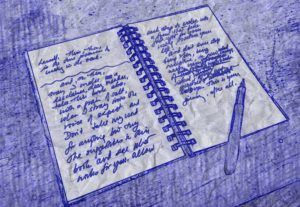 Writing Composites: Is it Legal? Ethical? Dangerous?
Writing Composites: Is it Legal? Ethical? Dangerous?
Therapists, doctors and coaches often worry about including client cases in a book. Should they be writing composites?
- What if the client recognizes herself?
- What if the someone else recognizes the client?
- Is this even legal?
They’re right to be concerned—legally, ethically and morally. And what might the effects be on someone who sees herself in a book? Or someone who recognizes someone he knows?
Option 1: The Waiver
You have several options to address these concern, however. If you have a great story and think the client may be amenable (and it’s not prohibited by a law like HIPAA) then you can ask outright for permission. Get this permission in writing.
Make sure the person understands they will not be paid for their story being shared. Publishers often have specific waivers for you to use but you can also get a waiver from an intellectual property attorney if you are self publishing.
Option 2: The Composite
Another option is to create composites: take a true situation and client; combine the facts with other cases. Change the gender, characteristics, personality, job and geography of the person. Meld it with another client case, perhaps.
Voila, a composite is born.
Here’s the kicker: If you turn a story into a composite too soon, you make squeeze out all the juice. It can end up sounding dull or even fake.
Earlier this morning, I spoke on the phone to an aspiring author who wants to write his memoir. We talked about changing some details of the people in the story and also, perhaps, leaving out some details that might make certain people look badly.
I advised him to write everything in while no one else is reading it. He can change details later, when sending the book to beta readers or an editor: “Just write the truth, without leaving things out, at first.”
[bctt tweet=”Benefits of Writing Composites after Writing The Original Story” username=”LisaTener”]
 There are 5 benefits to this method:
There are 5 benefits to this method:
- In the case of memoir, it can be healing to write your truth—uncensored.
- Once you start censoring, you inhibit the flow for the whole work. In a first draft of a memoir or story, the critic or editor should not be engaged. You want to write from your heart, again—uncensored.
- While revising and adding detail, you want to remember all the specific things—and sometimes that doesn’t all come in one draft. Keep in original names and details until you feel you’ve gotten the whole story down with all the details. Only then can you go back and create a composite, disguise identities or leave out some aspects that might hurt others or harm your relationship with them.
- When you write the full truth and then take some piece out, there’s a way in which your writing is still energetically complete. I know this sounds woo-woo, but it’s something I’ve discovered over my years in editing and writing coaching.
- It’s easier to cut something than it is to add it in later.
My advice, then, is to write the original story in your early drafts that only you will see. After you’ve written the juiciest parts of the story, anecdote or case study:
a) Think about whether certain details stick out as revealing of the person. Change those details first.
b) Also, think about details of other people you know that might lend themselves to the story: an interesting way of walking, a certain mannerism or colorful speech pattern. Or an interesting career.
c) Also think about story details you can embellish. Perhaps another client has a similar story and you can mesh the two—or even three.
Questions about writing composites or writing in general? Ask away and I will do my best to answer.


